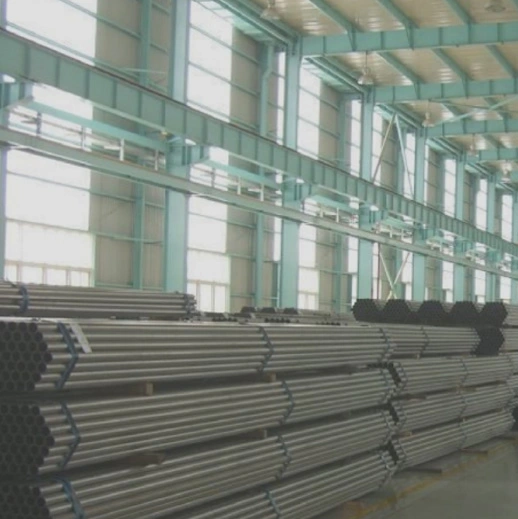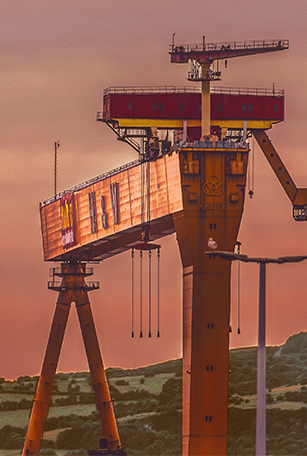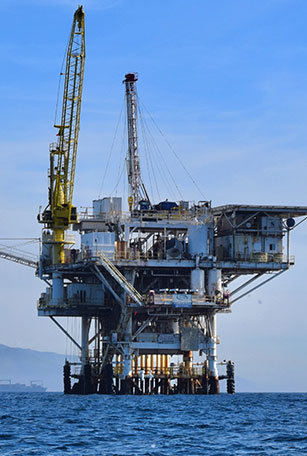
Precision Rolled Tube/Pipe is a type of tubing manufactured through high-precision rolling processes, characterized by high dimensional accuracy, excellent surface finish, and superior mechanical properties. It is widely used in industries that demand high standards for tube dimensions and performance, such as automotive manufacturing, aerospace, precision instruments, and medical devices.
High Dimensional Accuracy:
The precision rolling process ensures that the inner diameter, outer diameter, and wall thickness tolerances are controlled within extremely tight ranges, meeting the requirements for high-precision assembly.
Excellent Surface Quality:
The surface finish is smooth and free from defects such as cracks or scratches, making it suitable for applications with strict surface requirements.
Superior Mechanical Properties:
Due to the unique rolling process, precision rolled tubes exhibit high strength, hardness, and toughness, enabling them to withstand heavy loads and complex working environments.
Diverse Material Options:
Various materials can be selected based on requirements, including carbon steel, stainless steel, alloy steel, copper, and aluminum, catering to the specific needs of different industries.
Strong Customization Capability:
Tubes can be customized in terms of specifications, shapes, and performance to meet non-standard or special application scenarios.

Automotive Manufacturing:
Used in the production of automotive components such as drive shafts, hydraulic tubes, and fuel pipes, where high precision and strength are required.
Aerospace:
Used in hydraulic systems and fuel systems of aircraft and spacecraft, requiring lightweight, high strength, and corrosion resistance.
Precision Instruments:
Used in structural or functional parts of precision instruments, demanding high dimensional accuracy and surface finish.
Medical Devices:
Used in surgical instruments and medical equipment, requiring high cleanliness and biocompatibility.
Industrial Equipment:
Used in hydraulic systems, pneumatic systems, and bearings, requiring high wear resistance and pressure resistance.

The production of precision rolled tubes typically involves the following steps:
Material Selection: Choosing suitable raw materials (e.g., steel billets, aluminum billets) based on requirements.
Heating and Rolling: Processing the material into tubes through hot or cold rolling processes.
Precision Forming: Using high-precision rolling mills to control the dimensions and shape of the tubes.
Surface Treatment: Improving surface quality through processes such as polishing and pickling.
Inspection and Packaging: Conducting dimensional, surface, and performance inspections to ensure compliance with standards before packaging and delivery.

High dimensional accuracy reduces post-processing costs.
Excellent surface quality allows direct use in high-end equipment.
Superior mechanical properties ensure a long service life.
Customizable production meets diverse requirements.
If you need further details about specific materials, specifications, or application cases, feel free to provide more information!
Petroleum Equipments
Pump barrel stock, Size scope: Φ32,Φ38,Φ44,Φ57,Φ70,Φ83,Φ95,Φ108,Φ120,Φ140,Φ280 and non-standard specifications.


Pump housing for electric Submersible pump(ESP)
ESP housing manufactured by SAIGAO can be assembled without honing process.


Sucker Rod Coupling Cold rolled brass pipe
Cold rolled steel sucker rod Grde T Could rolled brass tube,apply to high corrosion-reistance pump barrel

This process utilizes finished seamless steel tubes, which undergo polishing, acid cleaning, phosphating, and saponification in the processing workshop. The tubes are then precision-rolled using a precision rolling mill. After cutting and straightening, the finished seamless steel tubes are obtained. For those requiring honing, they are transferred to the honing process to achieve honed finished tubes.

This process utilizes finished seamless steel tubes, which undergo polishing, acid cleaning, phosphating, and saponification in the processing workshop. The tubes are then precision-rolled using a precision rolling mill. After cutting and straightening, the finished seamless steel tubes are obtained. For those requiring honing, they are transferred to the honing process to achieve honed finished tubes.
Process Description of Production Wastewater, Waste Gas, Solid Waste, and Noise, Along with Treatment Methods:
A. Process 2 - Polishing
After raw materials are received, defective or rusty blank tubes undergo polishing. This process primarily generates solid waste, consisting of metallic iron and iron oxides. The solid waste is collected and returned to the manufacturer.
B. Process 3 - Cutting to Length
Based on customer requirements, steel tubes of varying lengths are produced. Cutting generates scrap tube ends, mainly composed of metallic iron. This solid waste is collected and returned to the manufacturer.
C. Process 4 - Acid Cleaning
The purpose of this process is to remove rust and oxide scales from the inner surface of the raw materials. The acid used is hydrochloric acid (HCl). This process primarily produces waste gas and waste acid. During the reaction, hydrochloric acid volatilizes, generating acidic waste gas. The gas is directed through exhaust pipes to a waste gas treatment tower, where it undergoes comprehensive treatment (see waste gas absorption tower process). Once the air meets emission standards, it is released. The absorption liquid, upon reaching a certain concentration, is discharged into the wastewater treatment pool. After comprehensive treatment (see wastewater treatment equipment and process), the water is reused. As the acid is continuously used, it gradually degrades and becomes ineffective, resulting in waste acid primarily composed of HCl and Fe²⁺. If hydrochloric acid is used, the spent acid is directly discharged into the wastewater pool, where it can be used as a pH adjuster. After comprehensive treatment, the water is reused.
D. Process 5 - Water Rinsing
After acid cleaning, the steel tubes undergo water rinsing, producing wastewater containing HCl and Fe²⁺. This wastewater is discharged into the wastewater treatment pool and, after comprehensive treatment (see wastewater treatment equipment and process), is reused.
E. Process 7 - Water Rinsing
After phosphating, the steel tubes are rinsed with water, generating wastewater containing small amounts of phosphating solution components, primarily PO₄³⁻, Mg²⁺, and Fe²⁺. This wastewater is discharged into the wastewater treatment pool and, after comprehensive treatment (see wastewater treatment equipment and process), is reused.
F. Process 11 - Cutting to Length
This process generates scrap tube ends, mainly composed of metallic iron. The solid waste is collected and returned to the manufacturer.
H. Process 14 - Honing
Before internal surface treatment, precision-rolled steel tubes require honing to achieve the required internal dimensions. This process generates solid waste in the form of iron filings, which are collected and returned to the manufacturer.

0531-69959201
lqg18653457231
+86-18653457231
No 12111,Jingshi Road, Lixia District, Jinan City, Shandong Province. P.R. China

Professional customer service team, professional after-sale services create a comprehensive high-quality, advanced technology, reliable products, which gives you a strong sense of security.

Professionals, professional skills and precision equipments insure that we can provide you with professional product customization service.

The best quality products, strict quality control system and good reputations established Saigao product's irreplaceable place.

Superb technical team with continuous technological innovation, closely follow the market's trend help you to create the highest performance products.
 English
English  日本語
日本語  français
français  Español
Español  русский
русский  português
português  العربية
العربية  tiếng việt
tiếng việt  ไทย
ไทย  Polska
Polska  română
română 

